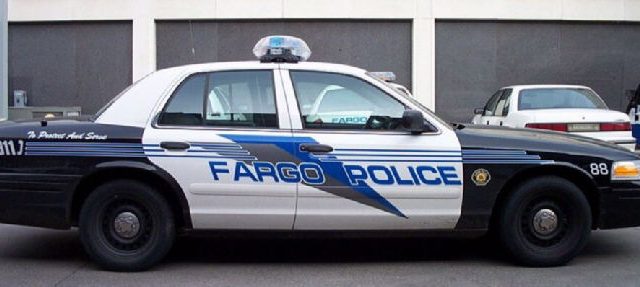North Dakota Law Enforcement Being Dishonest About Quotas Policies

A recent Gallup poll has indicated that American confidence in law enforcement is at a 22-year low. While most Americans do continue to say that they trust law enforcement, the downward trend should have cops worried.
Here in North Dakota we’ve avoided the sort of conflict and controversy that has made national headlines in other states, but there is an area where our state’s law enforcements aren’t doing themselves any favors when it comes to winning the public’s trust.
Earlier this year I broke a story about the North Dakota Highway Patrol issuing arrest/citation quotas to State Troopers. And these weren’t just quotas for speeding tickets. The highway patrol had quotas for drug arrests, seat belt violations, criminal arrests, DUI arrests, etc., etc.
Only, the Highway Patrol claims that their quotas – specific arrest/citation numbers given to Troopers along with the warning that failure to meet them could have professional repercussions – aren’t quotas.
Just like the Fargo Police Department is now claiming that their arrest/citation quotas aren’t quotas:
The proof comes in an email the city’s interim police chief, David Todd, recently sent to all of his officers. Obtained by The Forum through an open records request, the May 22 email says the chief wants officers to issue 20 to 25 citations a month.
But don’t call it a quota.
Todd rejects that label because, he says, he’s not setting a hard and fast number. Rather, he describes it as a “do-able average” that works out to about one or two tickets a day — a goal that half of his officers are already achieving.
“I think the public has an expectation of us to do traffic enforcement,” he said. “It seems reasonable that if you’re out there working a 10-hour shift, then you probably come across a traffic violation at least once during your day.”
Todd also tries to claim that the quotas aren’t about generating revenues:
Todd said one thing his traffic-ticket goal is not is a way to make money for the city, considering that many tickets range from just $10 to $20.
“It probably costs us money to write citations,” he said.
That’s utter bunk. The costs associated with writing citations are static. The taxpayers are paying for the officer’s salary and benefits, not to mention equipment and other expenses, whether that officer is writing citations or not.
[mks_pullquote align=”right” width=”300″ size=”24″ bg_color=”#000000″ txt_color=”#ffffff”]If you’re a police officer and your boss tells you that you need to be writing 20 – 25 citations per month or it’s going come up in your evaluations which are the basis for promotions and raises, how else could you possibly see the policy other than as a quota you’d better be prepared to meet?[/mks_pullquote]
If we do some quick math based on the numbers from the article, the City of Fargo has 151 officers on patrol expected to write at least 20 citations per month. If we split the difference of the $10 – $20 citation range Todd is alluding to and assume the average citation is about $15, we are talking about $543,600 in ticket revenue per year.
That’s a not insignificant amount of money, and that’s based on the minimum quotas the Fargo PD is instituting.
And these really are quotas. If you’re a police officer and your boss tells you that you need to be writing 20 – 25 citations per month or it’s going come up in your evaluations which are the basis for promotions and raises, how else could you possibly see the policy other than as a quota you’d better be prepared to meet?
It’s clear from the reactions our law enforcement agencies have to the suggestions that these are quotas policies – their staunch denials that the quotas are, you know, quotas – that they realize that quotas are problematic policy. They put the officer in the position of needing to write tickets to be successful at their jobs regardless of whether or not those tickets are justified.
If North Dakota’s law enforcement agencies want to keep their quotas policies, then fine. Let them defend the merits of that policy. But please, stop telling us these aren’t quotas because they are.
On a related note, the Legislature ought to consider addressing this situation. Other states have laws on the books prohibiting quotas. Minnesota statute, for instance, prohibits the use of quotas “for the issuance of traffic citations, including administrative citations.”
It seems pretty clear that the Fargo PD’s quotas policies would be illegal under that statute (which sort of undermines the argument that the policy isn’t quotas). Maybe North Dakota needs a similar statute.




